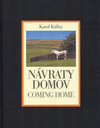
-
 Anglický jazyk
Anglický jazyk
Nazi propaganda films (Film Guide)
Autor: Source: Wikipedia
Source: Wikipedia. Commentary (films not included). Pages: 32. Chapters: Triumph of the Will, Jud Süß, The Eternal Jew, Hitler Youth Quex, Wunschkonzert, Nazism and cinema, Titanic, Ohm Krüger, Heimkehr, Kolberg, Olympia, Das Erbe, Die Deutsche Wochenschau,... Viac o knihe
Na objednávku, dodanie 2-4 týždne
14.67 €
bežná cena: 16.30 €
O knihe
Source: Wikipedia. Commentary (films not included). Pages: 32. Chapters: Triumph of the Will, Jud Süß, The Eternal Jew, Hitler Youth Quex, Wunschkonzert, Nazism and cinema, Titanic, Ohm Krüger, Heimkehr, Kolberg, Olympia, Das Erbe, Die Deutsche Wochenschau, Der Sieg des Glaubens, Hans Westmar. Einer von vielen. Ein deutsches Schicksal aus dem Jahre 1929, Tag der Freiheit: Unsere Wehrmacht, Friesennot, Theresienstadt, The Fox of Glenarvon, Flüchtlinge, Festliches Nürnberg, Sieg im Westen, Ich klage an, Wort und Tat, My life for Ireland, Kampf um Norwegen - Feldzug 1940, Vom Bäumlein, das andere Blätter hat gewollt, U-Boote westwärts, Besatzung Dora, S.A.-Mann Brand, Eine Symphonie des Kampfwillens, Tran and Helle, Der Nürnberger Parteitag der NSDAP, Der Herrscher, Der Marsch zum Führer, Feldzug in Polen, Erbkrank, Carl Peters, Opfer der Vergangenheit, Alles Leben ist Kampf, Der Postmeister, GPU, Der Westwall, Panorama. Excerpt: Triumph of the Will (German: ) is a propaganda film made by Leni Riefenstahl. It chronicles the 1934 Nazi Party Congress in Nuremberg (the Nuremberg Rally was attended by Nazi supporters to promote the Nazi political party), which was attended by more than 700,000 Nazi supporters. The film contains excerpts from speeches given by various Nazi leaders at the Congress, including portions of speeches by Adolf Hitler, interspersed with footage of massed party members. Hitler commissioned the film and served as an unofficial executive producer; his name appears in the opening titles. The overriding theme of the film is the return of Germany as a great power, with Hitler as the True German Leader who will bring glory to the nation. Triumph of the Will was released in 1935 and rapidly became one of the best-known examples of propaganda in film history. Riefenstahl's techniques, such as moving cameras, the use of long focus lenses to create a distorted perspective, aerial photography, and revolutionary approach to the use of music and cinematography, have earned Triumph recognition as one of the greatest films in history. Riefenstahl won several awards, not only in Germany but also in the United States, France, Sweden, and other countries. The film was popular in the Third Reich and elsewhere, and has continued to influence movies, documentaries, and commercials to this day. The film begins with a prologue, the only commentary in the film. It consists of the following text, shown sequentially, against a gray background: 'Day 1': The film opens with shots of the clouds above the city, and then moves through the clouds to float above the assembling masses below, with the intention of portraying beauty and majesty of the scene. The cruciform shadow of Hitler's plane is visible as it passes over the tiny figures marching below, accompanied by music from Richard Wagner's Die Meistersinger von Nürnberg, which slowly turns into the Horst-Wessel-Lied. Upon arriving at the Nuremberg
- Vydavateľstvo: Books LLC, Reference Series
- Rok vydania: 2016
- Formát: Paperback
- Rozmer: 246 x 189 mm
- Jazyk: Anglický jazyk
- ISBN: 9781156137130
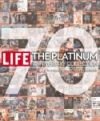
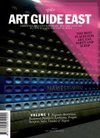

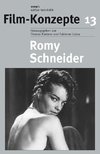



 Ruský jazyk
Ruský jazyk 
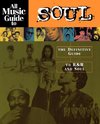

 Nemecký jazyk
Nemecký jazyk 
